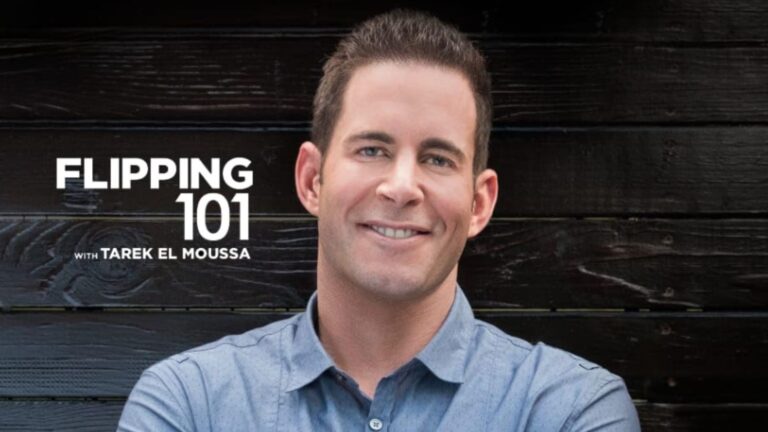15 Must-Ask Questions When Working with a Realtor

Working with a professional real estate agent can make buying or selling a home easier. Chemistry and bona fides become important when you interview agents to find The One. A good fit creates a team for the dealmaking to come.
A Realtor® belongs to the National Association of Realtors®, composed of nearly 1.5 million members. Not all real estate agents are Realtors, but for the purposes of this article, we’ll sometimes use Realtor and real estate agent interchangeably.
While you could buy a house without an agent, working with one could help you avoid common homebuying mistakes. Eighty-eight percent of buyers used a real estate agent or broker in 2019, while 89% of sellers relied on a real estate pro.
In the hunt for an agent, it’s important to know what to ask. This is a lengthy laundry list, so pick and choose questions that resonate the most.
How to Interview a Realtor
First, know that there are different options for interviewing Realtors. You could schedule an interview:
• Over the phone
• In person
• Virtually via Zoom or Skype
You might aim to interview at least three agents for comparison’s sake, though you may choose to interview more or fewer.
Create a list of interview questions beforehand if you’re short on time. And it may help to group your questions together so that by the time the interview is over, you understand:
• What the agent’s personality and character are like
• What kind of services they offer and what experience they bring to the table
• How much you’ll pay for their help
What to Ask About a Realtor’s Background
Any real estate agent you choose to work with should have the professional qualifications you’re looking for. But it’s also important to get a sense of who they are as an individual to avoid personality clashes.
1. How Long Have You Been a Realtor?
It helps to understand how long an agent you’re considering working with has been buying or selling homes. The median real estate experience of all Realtors is nine years, according to NAR.
Working with an agent who’s newer to the profession isn’t necessarily a bad thing. But one who’s more experienced may be more adept at handling any challenges that arise when buying or selling a home.
2. How Well Do You Know the Local Market?
A Realtor who knows a particular area or market well can offer an advantage when buying or selling. Ideally, you should work with an agent who understands the local market and what trends drive it.
The more informed they are, the better equipped they are to do things like comparative market analysis, which can give you a sense of how home prices in the area are trending.
3. How Many Clients Do You Work With at One Time?
The answer can give you an idea of how much time an agent will be able to dedicate to working with you.
The typical Realtor worked 36 hours per week in 2019, so it’s helpful to have realistic expectations going in.
4. How Many Transactions Did You Close Last Year?
Asking this question can give you an idea of an agent’s overall success rate and the volume of transactions they handle.
The median number of residential transactions Realtors took part in in 2019 was 12, so if you’re interviewing agents with closings well below that number, it could be a sign that they aren’t always successful in closing deals.
What to Ask About a Realtor’s Services
Real estate agents can perform a variety of tasks, so it’s helpful to know what those include and how they get done.
5. Do You Specialize in Buying or Selling?
Some Realtors may choose to work exclusively with buyers, while others work only with sellers.
And some can act as dual agents, representing both the buyer and seller in the same transaction. Dual agency is rare, and it’s illegal in several states. A dual agent can’t take sides or give advice.
6. What’s Your Typical Marketing Strategy?
This is a question sellers should ask. A Realtor should have a clear plan for listing and marketing your home in a way that produces the greatest odds of success in selling it quickly and at your desired price point.
7. How Long Does It Normally Take You to Close a Deal?
Closing on a home can take anywhere from a week, though that’s typically only common for cash buyers, to 60 days. The average time to close on a property in late 2020 was 47 days, according to Ellie Mae.
Asking a Realtor what their average closing time is can give you an idea of how efficiently and diligently they work to satisfy their clients.
If their average closing time is closer to four or six months, for example, that could be a red flag.
8. How Will We Communicate and How Often?
Being able to communicate with an agent is important to keep the process moving.
More than 90% of Realtors prefer email and text messaging as methods of communication.
That’s good if you prefer digital communication, but you may also ask whether phone calls or in-person meetings are an option.
9. Do You Work Alone or as Part of a Team?
Keep in mind that you may not be working with your Realtor alone to finalize the purchase or sale of a home. Agents may have a team of individuals they work with, including office managers, personal assistants, or marketing directors, who may reach out to you during the process.
Asking who else you may be connected with can help you avoid surprises if you decide to enter into a working relationship with a particular agent.
10. Will You Handle Staging and Prep Work?
If you’re selling a home, staging it could help influence buyers’ perceptions of the property and potentially encourage them to make an offer.
Staging is something you can do yourself, but your Realtor may have a staging company they work with to get the job done.
Asking about staging or small cosmetic updates, such as painting, can help you figure out what you’ll be responsible for to get your home ready for the market.
11. How Do You Handle Viewings?
The use of digital tools such as virtual tours have made properties more accessible to more buyers. Thirty-six percent of people say they’d consider buying a home entirely online, Zillow found, and 43% percent would be more likely to try to sell a home entirely online.
Buyers who prefer to see homes up close can ask Realtors how many viewings they typically schedule in a day or a week, per client. Sellers will want to get the details on how often open houses will be scheduled and how they’ll be marketed.
12. What Fees Do You Charge?
Real estate agents typically work on commission, meaning they only get paid when they close a deal. What you’ll pay and when depends on whether you’re buying or selling a home.
If you’re the buyer in a transaction, the seller is usually responsible for paying commission fees to both their agent and yours. If you’re selling a home, you’d cover the agent’s fees and they’d be deducted from the proceeds of the home sale.
The typical commission is 5% to 6% of the home’s sale price, split evenly between the buyer’s agent and the seller’s agent. So a $250,000 home, for example, would yield $12,500 to $15,000 in commissions.
Wrapping Up an Interview With a Realtor
As you finalize your meeting, here are a few additional questions for interviewing Realtors.
13. What Happens When I’m Ready to Make an Offer?
If you’re a buyer, agents should be able to walk you through how this process works, what to do if the seller makes a counteroffer, and what you’ll need to do next if your offer is accepted.
For example, they can advise you on how much earnest money you might need to pay and how to go about scheduling inspections.
14. Will You Help Me With Getting a Mortgage?
Agents may be able to offer recommendations for mortgage lenders. They may also be willing to communicate with your lender if there are questions about the property or the offer during underwriting.
You’re not obligated to use your Realtor’s recommended lender. In fact, it’s helpful to compare mortgage loan terms and interest rates from multiple lenders to find the option that best fits your needs.
15. What Are the Terms of Your Contract?
Working with a Realtor means entering into a contract, and it’s important to know what that contract says.
Once you sign a contract you’re typically locked in to working with them unless they agree to release you.
The listing agreement will last for a set period, such as three or six months. From your perspective, shorter may be better so that you’re not trapped if you don’t like the agent’s services.
The Takeaway
Due diligence in the search for the right real estate agent may mean interviewing a few, and not automatically going with your mom’s or co-worker’s agent friend. It’s important to know how to interview a Realtor and which questions to ask.
If you’re a buyer, once you’ve found an agent, you can turn your attention to getting prequalified for a mortgage loan, finding a property, and obtaining the mortgage.
SoFi home loans come with competitive, fixed interest rates and terms of 10 to 30 years.
And SoFi now offers loans on investment properties.
Disclosures:
SoFi Loan Products
SoFi loans are originated by SoFi Bank, N.A., NMLS #696891 Opens A New Window.(Member FDIC), and by SoFi Lending Corp. NMLS #1121636 Opens A New Window., a lender licensed by the Department of Financial Protection and Innovation under the California Financing Law (License # 6054612) and by other states. For additional product-specific legal and licensing information, see SoFi.com/legal.
SoFi Home Loans
Terms, conditions, and state restrictions apply. Not all products are available in all states. See SoFi.com/eligibility for more information.
Third-Party Brand Mentions: No brands or products mentioned are affiliated with SoFi, nor do they endorse or sponsor this article. Third-party trademarks referenced herein are property of their respective owners.
Financial Tips & Strategies: The tips provided on this website are of a general nature and do not take into account your specific objectives, financial situation, and needs. You should always consider their appropriateness given your own circumstances.
SOHL20064
This article is originally on SoFi.





